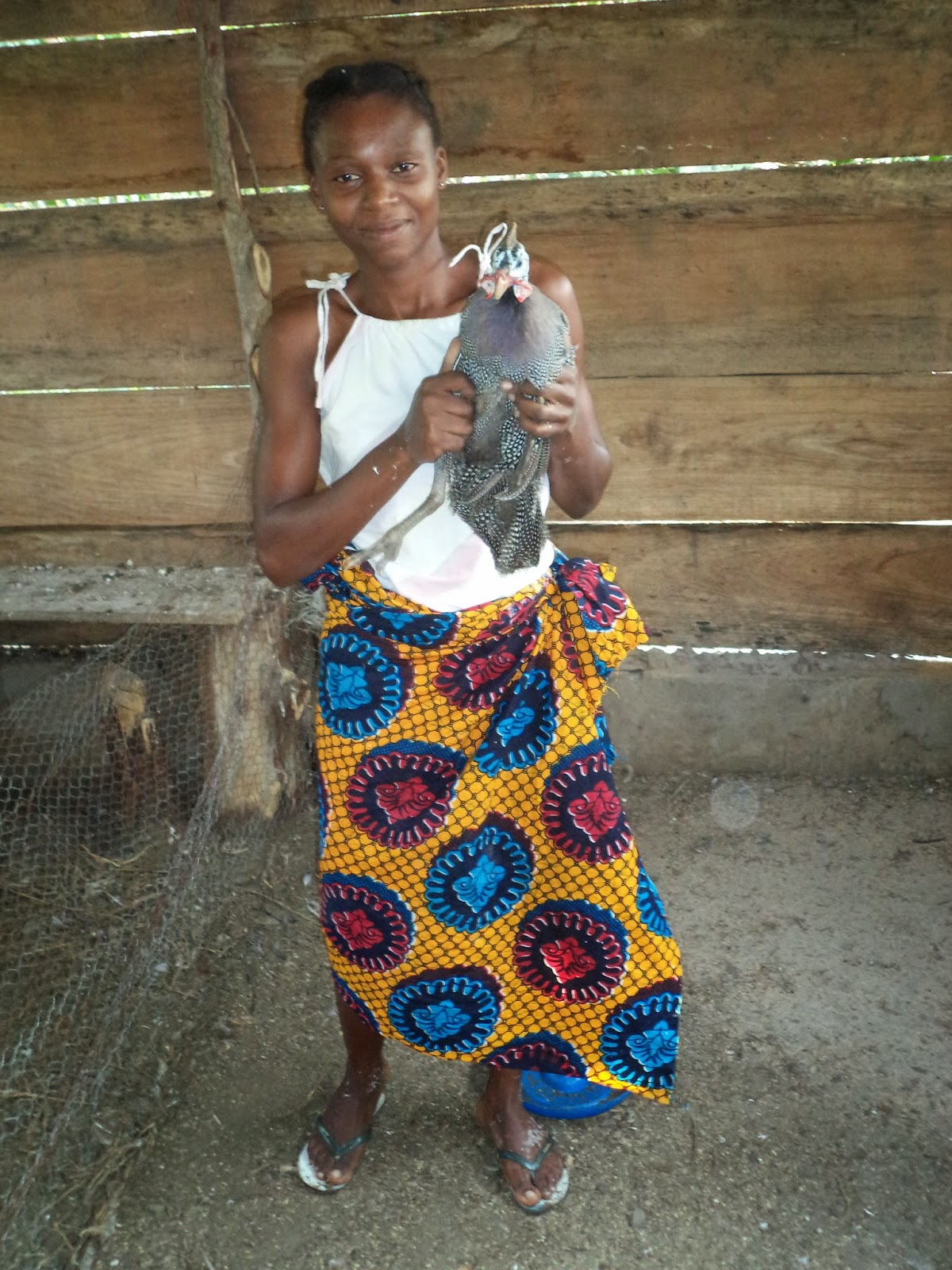The
incubating agro-engineers in Ibi and Mongata shared with us earlier this month
their experience with the project so far. Although they had to overcome many
unexpected challenges, there is also a lot of optimism with the incoming
cassava harvest and the numerous lessons learned. We start with the initial
impressions from 5 incubé-e-s from Ibi.
Aaron Mbuyamba
“The
project brought expertise, practical training with management. (...) There was
a delay in terms of execution with regards to the calendar, which caused many
failures in our fields. (...) I had a contact with the reality of agroforestry.
I learned how to manage a business; how to manage temporary workers. I
am putting into practice what I learned. (...)[The incubator] gave us a hand. But I can’t place all my hope on it
due to the uncertainty of rentability.”
"I
succeeded only with peanuts so far. I planted 2.5 hectares and got 14 bags (50k
each). The project gave me experience. I worked on a large space. (…)
When I took my products out, the market was inundated. This is due in part to the fact that the
warehouse isn’t built yet. (...) I improved what I learned in
university. I got a field to
express myself, to showcase my talents. (...) The temporary workers from the
village know the area well and some of them have an agricultural experience
that was helpful. By listening to them we can improve our results. (…) It’s my
dream to be able to manage a large agricultural business one day.”
“Despite
the delays, we can see the project. (...) Due to the delays, we haven’t
been able to intercrop with the cassava. (…) Planting crops over large spaces, managing workers who can be
difficult but with whom we still have to work, living with other people outside
the family… This is where I am seeing what I will be doing tomorrow. I have the
opportunity to have a parcel of my own. (...) What interests me most is
transformation. I need to do
an experiment with making yogourt out of soybean, and create my own brand.”
Sylvain Shamba
"This
project taught me many things. First, there is agroforestry. There are many
techniques I have learned. Second, there is entrepeneurship. Third, there is
the fund at my disposal for the fields and raising animals. (...) We teamed up
into a group of 4 and made a canteen where we can eat together. We came to know
each other better. Now, we know one another and complete each other well. (...)
I am optimistic. With the
means I will have after the harvest and the techniques I’ve learned here, I
will launch my business. The future is good.”




